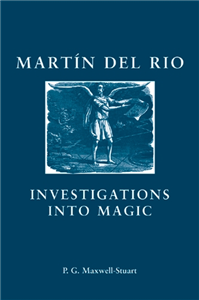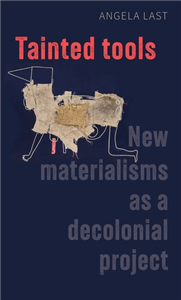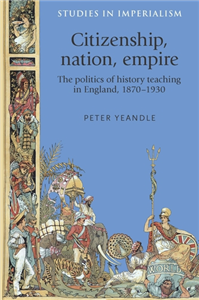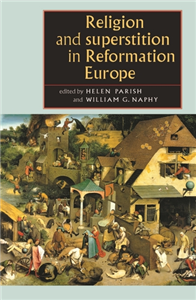Your Search Results
-
Promoted ContentAugust 2002
Mortgage und Charge.
Gestaltungsmöglichkeiten im englischen Kreditsicherungsrecht.
by Hofmann, Carsten
-
Promoted Content
-
 Trusted Partner
Trusted Partner
-
 Trusted Partner
Literature & Literary StudiesMay 1996
Trusted Partner
Literature & Literary StudiesMay 1996The White Devil
By John Webster
by John Brown
In this study of sexual and political intrigue, a fascinating but dangerous woman consents to the murder of her ineffectual husband. Her defence against the charge of adultery transforms the lurid tale of crime into high tragedy. A compellingly dangerous and fascinating play with a comprehensive set of notes and criticism. ;
-
 Trusted Partner
Literature & Literary StudiesMarch 1999
Trusted Partner
Literature & Literary StudiesMarch 1999Sejanus, His Fall
by Ben Jonson
by Philip Ayres
This edition of Jonson's great Roman tragedy is more intensively researched than any that has previously appeared. The text is based on extensive collation of the 1605 and 1616 versions and takes the earlier version as "copy-text." The introduction offers a radically new assessment of Jonson's "historiography" and his treatment of sources. It provides an explanation for the charge of treason leveled at Jonson over Sejanus and for which he had to answer to the Privy Council. Explanatory notes to the text provide much new information to facilitate a properly informed reading of the play. ;
-
 Trusted Partner
November 2021
Trusted Partner
November 2021Psycho-Trojans
How parasites control us
by Monika Niehaus, Andrea Pfuhl
Parasites are everywhere, and there is hardly a creature on earth that isimmune from their unwanted attention. The sneakiest among them haveeven developed the ability to turn their host’s behaviour and mind totheir own advantage. Parasites can cause striking psychological changeseven in humans. Today a good dozen of pathogens are suspected of triggeringpsychiatric disorders, and there are probably many more. Some ofthese psycho-parasites and their incredible tricks are introduced here. Butthe book also covers the “standard” parasites that have ruled the destinyof mankind from the beginning of time – probably even more than thegenerals and kings that we thought were in charge.
-
 Trusted Partner
Health & Personal DevelopmentMay 2016
Trusted Partner
Health & Personal DevelopmentMay 2016Introduction to Integrative Body Psychotherapy
by Eva Kaul, Markus Fischer
A practical and up-to-date handbook that provides an introduction to the theory and practice of integrative body psychotherapy. The systematic focus on the body makes Integrative Body Psychotherapy unique and is something that is increasingly being regarded as an indispensable addition to and enrichment of the theory and practice of psychotherapy. This manual provides information on: • Basic humanistic concepts (presence, awareness, personal space, grounding, gestalt work) • Psychodynamic principles (developmental psychology, developmental personality model) • Stress model (disorders of stress regulation, implications for psychotherapy) • Breathing and body work (energetic approach, blockages, high-charge breathing, working with touch, self-relaxation techniques) • Working with sexuality in psychotherapy With concrete case studies and clear instructions for physical exercises (with diagrams) it makes for a comprehensive guide for any psychotherapist. Target Group: psychotherapists, coaches
-
 Trusted Partner
2019
Trusted Partner
2019At Night, Everyone is an Enemy
True stories
by Bruno Schrep
One wrong word, one perceived insult – a small matter may begin a chain of events resulting in tragedy. This was the case with Anothai S., who died in a brawl in Hamburg in September 2014. A quote from the circumstances of this death, reconstructed by Bruno Schrep for the SPIEGEL magazine, has given this book its title. “At Night, Everyone is an Enemy” compiles true stories of people who have been torn from their normal lives and plunged into despair from one moment to the next. In one case, it is a rumour that destroys all plans – the accusation of having abused children. Likewise, the information that your father and mother, who raised you, are not your biological parents, can turn your life upside down. And many an accident destroys not only the life of the victim, but also that of the person who caused the accident. As an accurate observer, Bruno Schrep describes human tragedies with empathy, but also with a keen eye for structural problems.
-
 Trusted Partner
Humanities & Social SciencesJuly 2018
Trusted Partner
Humanities & Social SciencesJuly 2018Witchcraft narratives in Germany
Rothenburg, 1561–1652
by Joseph Bergin, Alison Rowlands, Penny Roberts, William G. Naphy
Looks at why witch-trials failed to gain momentum and escalate into 'witch-crazes' in certain parts of early modern Europe. Exames the rich legal records of the German city of Rothenburg ob der Tauber, a city which experienced a very restrained pattern of witch-trials and just one execution for witchcraft between 1561 and 1652. Explores the social and psychological conflicts that lay behind the making of accusations and confessions of witchcraft. Offers insights into other areas of early modern life, such as experiences of and beliefs about communal conflict, magic, motherhood, childhood and illness. Offers a critique of existing explanations for the gender bias of witch-trials, and a new explanation as to why most witches were women.
-
 Trusted Partner
Humanities & Social SciencesAugust 2009
Trusted Partner
Humanities & Social SciencesAugust 2009Martin del Rio
INVESTIGATIONS INTO MAGIC
by P. Maxwell-Stuart, Sarah Purdue
This is the first English translation of one of the most important, interesting and comprehensive discussions of the occult sciences ever published. Investigations into magic deals not only with magic in all its forms, from the manipulation of angelic and demonic powers to straightforward conjuring and illusion, but also with witchcraft, alchemy, astrology, divination, prophecy, and possession by evil spirits. In addition, Del Rio gives judges and confessors practical advice on the most effective ways of dealing with people who are accused of practising magic, and enlivens his whole discussion with anecdotes drawn from a remarkable range of sources, including his own experience. Nothing so panoramic had ever appeared before, and for the next one hundred and fifty years Investigations into magic was the indispensable reference work on the subject. ;
-
 Trusted Partner
Humanities & Social SciencesMarch 2019
Trusted Partner
Humanities & Social SciencesMarch 2019Waiting for the revolution
The British far left from 1956
by Evan Smith, Matthew Worley, Jacquelyn Arnold, Daniel Finn, Michael Fitzpatrick, Diarmaid Kelliher, Jack Saunders, J Daniel Taylor, Jodi Burkett, Gavin Brown, Daisy Payling, Christopher Massey, Sheryl-Bernadett Buckley, Daryl Leeworthy, Rory Scothorne, Ewan Gibbs, Lyndon White (Lawrence Parker)
Waiting for the revolution is a volume of essays examining the diverse currents of British left-wing politics from 1956 to the present day. The book is designed to complement the previous volume, Against the grain: The far left in Britain from 1956, bringing together young and established academics and writers to discuss the realignments and fissures that maintain leftist politics into the twenty-first century. The two books endeavour to historicise the British left, detailing but also seeking to understand the diverse currents that comprise 'the far left'. Their objective is less to intervene in ongoing issues relevant to the left and politics more generally, than to uncover and explore the traditions and issues that have preoccupied leftist groups, activists and struggles. To this end, the book will appeal to scholars and anyone interested in British politics.
-
 Trusted Partner
Literature & Literary StudiesJune 2026
Trusted Partner
Literature & Literary StudiesJune 2026Tainted tools
New materialisms as a decolonial project
by Angela Last
Tainted Tools makes a provocative intervention into the fraught intersection between new materialist and decolonial approaches. Despite a common project of challenging European philosophical and social categories and hierarchies, the discourses are considered incompatible. Most prominently, new materialisms have been accused of harbouring a White vision of the human while disregarding the racist resonances of the 'nonhuman'. The book traces this conflict to an earlier meeting point of new materialist and decolonial projects, which came about through the experimental combination of Marx and Nietzsche. Used to fight fascism, Stalinism and colonialism, this politically contentious fusion gradually became depoliticised, leading to unaddressed tensions today. While the book does not argue for a revival of these early 'new materialisms', it brings their strategies into dialogue with today's new materialisms and decolonial approaches to develop greater theoretical solidarity in times of crisis.
-
 Trusted Partner
Literary theoryJuly 2014
Trusted Partner
Literary theoryJuly 2014Degeneration, decadence and disease in the Russian fin de siècle
Neurasthenia in the life and work of Leonid Andreev
by Frederick H. White
Early in the twentieth century, Russia was experiencing a decadent period of cultural degeneration just as science was developing ways to identify medical conditions which supposedly reflected the health of the entire nation. Leonid Andreev, the leading literary figure of his time, stepped into the breach of this scientific discourse with literary works about degenerates. The spirited social debates on mental illness, morality and sexual deviance which resulted from these works became part of the ongoing battle over the definition and depiction of the irrational, complicated by Andreev's own publicised bouts with neurasthenia. This book examines the concept of pathology in Russia, the influence of European medical discourse, the development of Russian psychiatry, and the role that it had in popular culture, by investigating the life and works of Andreev. It engages the emergence of psychiatry and the role that art played in the development of this objective science.
-
 Trusted Partner
Humanities & Social SciencesJanuary 2019
Trusted Partner
Humanities & Social SciencesJanuary 2019The post-crisis Irish voter
Voting behaviour in the Irish 2016 general election
by Michael Marsh, David M. Farrell, Theresa Reidy
This is the definitive study of the Irish general election of 2016 - the most dramatic election in a generation, which resulted in the worst electoral outcome for Ireland's established parties, the most fractionalized party system in the history of the state, and the emergence of new parties and groups. These outcomes follow a pattern seen across a number of Western Europe's established democracies in which the 'deep crisis' of the Great Recession has wreaked havoc on party systems. The objective of this book is to assess this most extraordinary of Irish elections both in its Irish and wider cross-national context. With contributions from leading scholars on Irish elections, and using a unique dataset - the Irish National Election Study 2016 - this volume explores voting patterns at Ireland's first post crisis election and it considers the implications for the electoral landscape and politics in Ireland.
-
 Trusted Partner
Humanities & Social SciencesJanuary 2017
Trusted Partner
Humanities & Social SciencesJanuary 2017The divorce of King Lothar and Queen Theutberga
Hincmar of Rheims's De divortio
by Rachel Stone, Charles West
In the mid-ninth century, Francia was rocked by the first royal divorce scandal of the Middle Ages: the attempt by King Lothar II of Lotharingia to rid himself of his queen, Theutberga and remarry. Even 'women in their weaving sheds' were allegedly gossiping about the lurid accusations made. Kings and bishops from neighbouring kingdoms, and several popes, were gradually drawn into a crisis affecting the fate of an entire kingdom. This is the first professionally published translation of a key source for this extraordinary episode: Archbishop Hincmar of Rheims's De divortio Lotharii regis et Theutbergae reginae. This text offers eye-opening insight both on the political wrangling of the time and on early medieval attitudes towards magic, penance, gender, the ordeal, marriage, sodomy, the role of bishops, and kingship.The translation includes a substantial introduction and annotations, putting the case into its early medieval context and explaining Hincmar's sometimes-dubious methods of argument.
-
 Trusted Partner
Humanities & Social SciencesMay 2020
Trusted Partner
Humanities & Social SciencesMay 2020Citizenship, nation, empire
The politics of history teaching in England, 1870–1930
by Andrew Thompson, Peter Yeandle, John M. MacKenzie
Citizenship, nation, empire investigates the extent to which popular imperialism influenced the teaching of history between 1870 and 1930. It is the first book-length study to trace the substantial impact of educational psychology on the teaching of history, probing its impact on textbooks, literacy primers and teacher-training manuals. Educationists identified 'enlightened patriotism' to be the core objective of historical education. This was neither tub-thumping jingoism, nor state-prescribed national-identity teaching, but rather a carefully crafted curriculum for all children which fused civic as well as imperial ambitions. The book will be of interest to those studying or researching aspects of English domestic imperial culture, especially those concerned with questions of childhood and schooling, citizenship, educational publishing and anglo-British relations. Given that vitriolic debates about the politics of history teaching have endured into the twenty-first century, Citizenship, nation, empire is a timely study of the formative influences that shaped the history curriculum in English schools
-
 Trusted Partner
2020
Trusted Partner
2020Mutschler’s Drug Actions
Pharmacology – Clinical Pharmacology – Toxicology
by Prof. Dr. Dr. Gerd Geisslinger, Dr. Sabine Menzel, Prof. Dr. Thomas Gudermann, Prof. Dr. Burkhard Hinz and Prof. Dr. Peter Ruth. Founded by Prof. Dr. Dr. Dres. h.c. Ernst Mutschler
For half a century, “Mutschler” has been the standard reference work on pharmacology and toxicology – always forward-looking and at the cutting edge. The 11th edition continues this approach: ■ Up-to-the-minute: new drugs, including biologicals, relevant guidelines in the context of evidence-based medicine ■ Clearly structured: completely new layout with the focus on indication-related pharmacotherapy; uniformly constructed concise chapters ■ Well-illustrated: with many figures and tables, completely revised ■ Easy to remember: readily understandable explanations – even of complex issues ■ Critical: objective, independent assessment of the clinical value of drugs and drug groups ■ Comprehensive: with short introductions into the principles of anatomy, physiology and pathophysiology in the individual chapters ■ Reliable: full coverage of the subjects usually tested in the medical and pharmaceutical state examinations The proven source for complete knowledge about the actions of drugs: for students and practitioners.
-
 Trusted Partner
European historyJanuary 2003
Trusted Partner
European historyJanuary 2003Religion and superstition in Reformation Europe
by Edited by Christopher Durston and Judith Maltby
What, in the sixteenth and seventeenth centuries, was 'superstition'? Where might it be found, and how might it be countered? How was the term used, and how effective a weapon was it in the assault on traditional religion?. The ease with which accusations of 'superstition' slipped into the language of Reformation debate has ensured that one of the most fought over terms in the history of early modern popular culture, especially religious culture, is also one of the most difficult to define. Offers a novel approach to the issue, based upon national and regional studies, and examinations of attitudes to prophets, ghosts, saints and demonology, alongside an analysis of Catholic responses to the Reformation and the apparent presence of 'superstition' in the reformed churches. Challenges the assumptions that Catholic piety was innately superstitious, while Protestantism was rational, and suggests that the early modern concept of 'superstition' needs more careful treatment by historians. Demands that the terminology and presuppositions of historical discourse on the Reformation be altered to remove lingering sectarian polemic.
-
 Trusted Partner
Humanities & Social SciencesMarch 2012
Trusted Partner
Humanities & Social SciencesMarch 2012John Hume and the revision of Irish nationalism
by P. J. McLoughlin
The book, available at last in paperback, explores the politics of the most important Irish nationalist leader of his generation, and one of the most influential figures of twentieth-century Ireland: the Nobel Peace Prize winner, John Hume. Given his central role in the reformulation of Irish nationalist ideology, and the vital part which he played in drawing violent republicanism into democratic politics, the book shows Hume to be one of the chief architects of the Northern Ireland peace process, and a key figure in the making of the 1998 Good Friday Agreement. At the same time, it considers Hume's failure in what he stated to be his foremost political objective: the conciliation of the two communities in Northern Ireland. The book is essential reading for specialists on Irish history and politics, but will also be of interest to academics and practitioners working in other regions of political and ethnic conflict. In addition, it will appeal to readers seeking to understand the crucial role played by Hume in modernising Irish nationalist thinking, and bringing peace to Northern Ireland. ;
-
 Trusted Partner
Humanities & Social SciencesJanuary 2020
Trusted Partner
Humanities & Social SciencesJanuary 2020Reform and the papacy in the eleventh century
Spirituality and social change
by S. H. Rigby, Kathleen G. Cushing
This book explores the relationship between the papacy and reform against the backdrop of social and religious change in later tenth and eleventh-century Europe. Placing this relationship in the context of the debate about 'transformation', it reverses the recent trend among historians to emphasise the reform developments in the localities at the expense of those being undertaken in Rome. It focuses on how the papacy took an increasingly active part in shaping the direction of both its own reform and that of society, whose reform became an essential part of realising its objective of a free and independent Church. It also addresses the role of the Latin Church in western Europe around the year 1000, the historiography of reform, the significance of the 'Peace of God' as a reformist movement, the development of the papacy in the eleventh century, the changing attitudes towards simony, clerical marriage and lay investiture, reformist rhetoric aimed at the clergy, and how reformist writings sought to change the behaviour and expectations of the aristocracy. Summarising current literature while presenting a cogent and nuanced argument about the complex nature and development of reform, this book will be invaluable for an undergraduate and specialist audience alike.





























